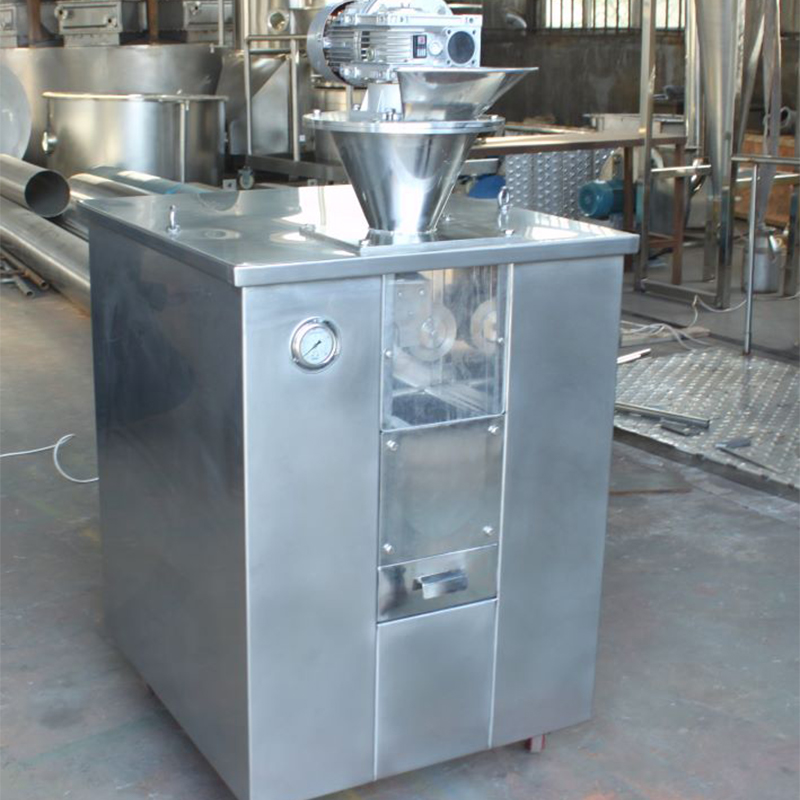Working Principle and Advantages of Dry Granulator
Dry Granulator is an important pharmaceutical and industrial equipment widely used in pharmaceutical, food and chemical industries. Its main function is to convert powdered materials into granules by physical methods, which is efficient and energy-saving. Compared with wet granulators, dry granulators do not require liquid binders, which makes them particularly outstanding when handling heat-sensitive materials.
Working Principle
The working process of dry granulator is mainly divided into two steps: pressing and granulation. First, the material enters the pressing chamber through the feed port, and the mechanical device compresses it into flakes or blocks. Then, these blocks are crushed and screened to convert into uniform granules. During the whole process, the pressure, speed and temperature inside the equipment can be adjusted, and the pressing force and particle size can be flexibly adjusted according to the characteristics and particle requirements of different materials.
In the design of dry granulator, reasonable structure and excellent material selection are the key to ensure its efficient operation. Modern equipment is usually equipped with advanced control systems that can monitor the production process in real time to ensure the consistency of product quality.
Application Field
Dry granulator is increasingly widely used in many industries. In the pharmaceutical industry, especially in the production of tablets and capsules, dry granulators can ensure the uniformity and stability of the finished product, meeting strict pharmaceutical production standards. In addition, in the food industry, dry granulators are used to produce candies, seasonings, etc., improving the solubility and taste of the products.

In the chemical industry, this equipment is often used to manufacture materials such as catalysts and coatings. Due to its ability to effectively reduce humidity during the production process, dry granulators perform well in handling deliquescent and heat-sensitive materials, ensuring the quality of the final product.
Advantages
A significant advantage of using dry granulators is its high efficiency. Compared with traditional wet granulation, the production cycle of dry granulation is significantly shortened, saving time and cost. At the same time, the equipment is easy to operate, easy to clean and maintain, reducing the downtime of the production line and improving the overall production efficiency.
In addition, dry granulators can reduce the use of solvents in the production process, which not only reduces the risk of environmental pollution, but also reduces production costs. With the increasing global attention to environmental protection, dry granulators are gradually becoming the preferred equipment for many companies due to their low energy consumption and low emissions.



 English
English русский
русский عربى
عربى Türk
Türk




